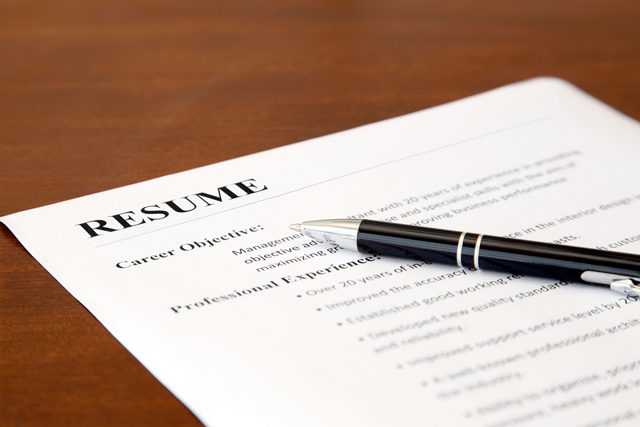This task can seem like climbing a mountain.
Consider the real purposes of the resume. There are two. The best purpose is as a “leave behind.” You have networked into a potential employer, you have had a good meeting, and at the end of the meeting, the potential boss says “do you have a resume you can leave with me?”
The second purpose is to pique a potential employer’s interest enough to make a phone call or send an email to you asking for a discussion.
The resume does not get you an interview. It does not get you an offer. It does not get you the job.
When writing a resume, “do” the following:
Research other resumes from your industry. Look at posted job ads and see the skills that are being requested. Draft your accomplishments to reflect what the ads suggest. Look on LinkedIn for others in your industry and see how they describe their skills. There are many templates on the Internet, pick one and follow it. There is no perfect outline.
Be professional and businesslike, not cute. Your resume will be glanced at for about 10 seconds, and the reader wants to quickly see your work experience and education and licenses. Do not fuss with special paper, fonts, italics, etc. Make it easy to read, and a total of no more than two pages.
Be truthful. Make sure your dates of employment are accurate, don’t lie about anything. It does not pay.
Be flexible. Make sure your resume is in a format that can be “tweaked” for a specific job posting. Make sure it prints out nicely and that your name is on page two as well as page one.
Use a summary or introductory paragraph focused on your general job goals and industry experience. Help the reader see your experience quickly.
Be grand! List your skills and accomplishments with pride. Reference results achieved, the number of people managed, and budgets supervised. Describe the business of your employer, its sales, locations, etc., especially if it is relatively unknown.
Provide your work history chronologically. This is generally the preferred method.
Understand that if you do not provide dates of your education or early employment, the reader will assume you are older and hiding something. Most resumes now do not include dates of college unless very recent.
Ask someone objective to edit and proofread your resume. Do not ask more than a few for comments.
As a reminder, most jobs are filled via networking. Someone knows someone who makes a call to introduce someone. The resume is required for the process, but it is not the end goal.
Got a resume ready to go? Post it to gCaptain’s resume bank and let employers find you.

 Join The Club
Join The Club











